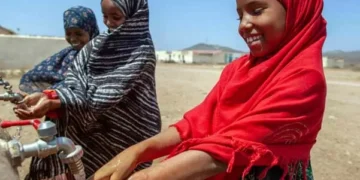In today’s interconnected world, we are facing multiple crises that are stretching the limits of international cooperation. Conflicts, climate breakdown, and democratic regression are just some of the issues that are overwhelming the capabilities of international institutions designed to address problems that states can’t or won’t solve on their own. And now, with the US withdrawal from global bodies, there is a real risk of exacerbating this crisis in international cooperation.
The world has always faced various challenges, but the current state of affairs is especially concerning. Global issues such as poverty, terrorism, and pandemics require a coordinated and united effort from all countries. However, the recent trend of nationalism and isolationism has led to a decline in international cooperation. This has only exacerbated the existing crises and created new ones.
One of the main reasons for the failure of international institutions to effectively address these challenges is the lack of political will from some countries. Many states are more focused on their own national interests, often at the expense of global stability and cooperation. This is where the role of international institutions becomes crucial. They serve as a neutral ground for countries to come together and work towards a common goal.
However, with the US withdrawing from global bodies, there is a real risk of damaging the already fragile state of international cooperation. The United States has been a key player in many international organizations, providing financial and political support. Its withdrawal from these bodies not only weakens their effectiveness but also sends a message that the US is no longer willing to play a leading role in promoting global cooperation.
This withdrawal also has a domino effect on other countries. With the US stepping back, other countries may feel less inclined to participate in these institutions, leading to a further decline in cooperation. This could have disastrous consequences, especially when it comes to addressing urgent issues like climate change. The effects of climate change are already being felt around the world, and without strong international cooperation, there is little hope of effectively addressing this crisis.
Moreover, the US withdrawal also undermines the credibility of these international institutions. With one of the world’s most powerful countries pulling out, it raises doubts about the effectiveness and legitimacy of these organizations. This, in turn, could discourage other countries from participating and damage the potential for future cooperation.
It is important to note that the US is not the only country to withdraw from international organizations. However, as one of the leading global powers, its actions have a significant impact on the rest of the world. And in a time where global issues require global solutions, the US withdrawal is a major setback.
To overcome this crisis in international cooperation, it is crucial for other countries to step up and fill the gap left by the US. It is also important for the international community to reassess and strengthen the role and effectiveness of these institutions. This includes addressing issues such as unequal representation and decision-making processes, which may hinder the cooperation of countries.
Furthermore, countries need to understand that international cooperation is not a zero-sum game. Working together towards common goals benefits everyone in the long run. It is also important to acknowledge that no country can solve these global issues on its own. We need to work together and support each other in finding solutions and promoting global stability.
In conclusion, the current state of international cooperation is facing a major crisis, and the US withdrawal from global bodies only exacerbates this situation. It is crucial for countries to come together and find ways to strengthen and revitalize international institutions. The world needs strong and effective international cooperation now more than ever to overcome the multiple crises we face and build a better and more sustainable future for all.


